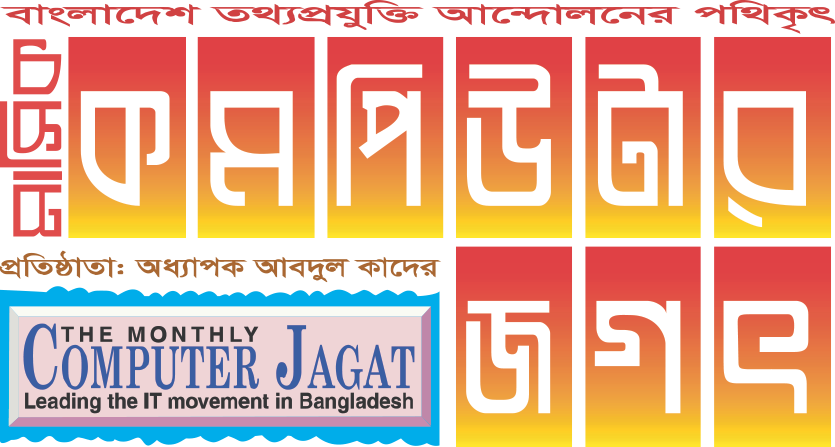হোম > ICT Outsourcing and Bangladesh
লেখক পরিচিতি
লেখকের নাম:
আহমেদ হাফিজ খান
মোট লেখা:১৫
লেখা সম্পর্কিত
পাবলিশ:
২০০৮ - ডিসেম্বর
তথ্যসূত্র:
কমপিউটার জগৎ
লেখার ধরণ:
আইসিটি
তথ্যসূত্র:
ইংরেজি সেকশন
ভাষা:
বাংলা
স্বত্ত্ব:
কমপিউটার জগৎ
ICT Outsourcing and Bangladesh
ICT Professional Skill Assessment and Enhancement Program (IPSAEP) was designed and was formally approved in the ICT Task Force meeting chaired by the Chief Adviser. Unfortunately, Science & ICT Ministry is mum with the proposed IPSAEP.
The global outsourcing business has seen a tremendous growth in past years. The outsourcing in software and information & communication technology ICT- enabled services created an immense interest in Bangladesh observing the success of the developing countries like India, Philippines and Vietnam. The factors behind the growth of ICT industry from modest start in the successful countries ranged from government support, infrastructure roll out, financial support and availability of human resource.
An industry experience report by Rob Kommeren and Päivi Parviainen titled Philips Experiences in Global Distributed Software Development discussed the Philips experience of over 10 years of distributed development through outsourcing involving dozens of projects. The outcome is an aggregate of experience and lessons learnt of a long-term and large-scale development activities. Since the experience and lessons learnt discussed in this paper have been found repeating in several projects over time, in different settings and observed by different people, they can be seen as general, common issues occurring in, and because of outsourcing. The report in its opening statement states that – The highly competitive business environment—with the ever increasing functionality of the products implemented in software—places intense demands on delivering higher quality software faster. Companies need to use their existing resources as effectively as possible, and they also need to employ multiple development teams on a global scale. The ability to collaborate amongst these teams has become a critical factor in software development life cycle.
The report also states in its conclusion that – The general lesson learnt from this experience is that the reality of distributed software development is significantly deviating from the theoretic hypothesis: the efficiency of distributed software development is perceived to be disappointingly low, whereas increased efficiency was expected. First measurements indicate that up to 50% of the development effort is spent on overhead (such as extra project management and team coordination) and communication. This has lead to that global distributed development which in practice been two to three times more costly compared to one-roof development. Preliminary conclusion is that, in general, distributed software development should be avoided as far as possible.
In February of this year, President elect Barack Obama proposed that he would stop providing tax breaks for companies that were shipping jobs overseas through outsourcing activities and instead give tax breaks to companies that invested in the United States. This was an ominous sign of a possible protectionist attitude that the US could adopt to curtail outsourcing activities of US firms.
These information are important for Bangladesh to take appropriate measures to develop into outsourcing destination. The main reason for the outsourcing is delivering higher quality software faster. This means higher productivity and efficiency, which translates to requirement of highly skilled manpower backed by appropriate copyright act and technical infrastructure. The ICT industry in Bangladesh today is more vocal on the issues of access to finance and the price of the bandwidth whereas in the light of the evolving global scenario after the current recession requires the industry to proactively ponder on the actual needs for the development of the industry.
Globally outsourced software development allows organizations to benefit from access to a larger, qualified resource pool with the promise of reduced development costs. Another potentially positive impact of global outsourcing is innovation: mixing of developers with different cultural backgrounds may trigger new ideas. On the other hand, several studies have indicated problems in outsourcing software development, including Damian et al. 2004; Boland and Fitzgerald 2004; VA Software 2005 : poor visibility and control of remote activities, inadequate communication, collaboration and coordination across individuals, teams, time-zones and projects, insufficient knowledge and asset management capabilities, language and cultural differences, trust factors, and lack of shared contextual awareness.
The growth of the ICT industry in Bangladesh has been very slow due to above challenges. This is visible from the number of software professionals employment in these companies. Baring handful ICT companies most of the companies has remained less than ten programmers company even though a considerable time has elapsed after their inception. The capability and technical competence of these programmers are also not accredited which is a barrier in winning clients confidence. The governments initiative to build qualified pool of ICT professionals initiated a 6 month internship program for ICT industry. Under this program a qualified graduate on employment in ICT Industry gets 60% Taka 3000/month from government and 40% Taka 2000/month from the employer. The industry failed to absorb the desired 500 ICT Professionals per batch leading to 1000 professionals per annum even after the government subsidy on salary due to the quality of these graduates and resulting in very slow growth of the local ICT industry. The industry insiders point out that the intake is falling due to the quality of the graduates. The following data obtained from Bangladesh Assosiation of Software & Information Services (BASIS) gives the picture of Employment under ICT Internship Program.
Batch Target Successful
Internship Failure
1 500 281 219
2 500 224 276
3 500 194 306
4 500 182 318
5 500 133 367
Table : Employment under ICT Internship Program
After detailed discussion and analysis of this unfortunate situation with the industry, academia and the government it was observed baring few most of the graduates lack the pre-requisites for employment. To overcome this bottelneck and ensure growth of our ICT industry a program to develop the human capacity under ICT Professional Skill Assessment and Enhancement Program (IPSAEP) was designed and was formally approved in the ICT Task Force Meeting chaired by the Chief Adviser. Unfortunately, Science & ICT Ministry is sleeping with the proposed IPSAEP.
We have missed the industrial revolution because of the various constraints and now the golden opportunity to enter the ICT revolution is being hampered by the delays from within the government. The new global environment emerging out of the recession in the developed world will mean stricter cost control in ICT outsourcing similar to the measures seen after the dot com burst. Bangladesh has no dearth of human resource but delay in appropriate measures quickly to tap the resource will mean failure of our dream with ICT. In contrast to our effort The Philippines government is creating Next Wave Cities to increase its share in the ICT and ITES outsourcing business. So-called “next wave cities” are areas around the country outside Metro Manila and Metro Cebu which offer the best potential to support the growing outsourcing sector. The 30 cities considered for the list were scored on talent (50%), infrastructure (30%) business environment (15%) and cost of doing business (5%). The Philippines outsourcing industry is targeting to grow its market share to 10% of the global outsourcing market, which is expected to grow to be worth $130 billion by 2010. The Philippines currently corners 9% of the global outsourcing market - a far second to the worldwide leader India, which has around half of the global market. These cities are an important ingredient in the Roadmap 2010 initiative of the Philippines. Late last year, the Philippines industry group launched its Roadmap 2010, which projects the industry to grow to 900,000 to a million employees by 2010, from 300,000 in 2007. Export revenues are also expected to grow to $12 billion by 2010 from under $7 billion by yearend. However unlike the proposed ICT Roadmap for Bangladesh this Roadmap 2010 of Philippines does not prescribes anything against the national integrity of the Philippines.
The Indian government, industry and academia are working together to enhance the skill sets to match the global demand. The growth of Software Finishing School ensures India remains the number one choice for ICT outsourcing.
The Vietnamese ICT professionals are similar to those in Bangladesh. They are hard-working and low cost, but just doesnt have the breadth of knowledge, as of yet, to compete with the likes of India in terms of offshore software production. In fact Vietnamese software engineers like Bangladeshi counterparts are rated on par with their counterparts in other countries for technical aptitude especially in application development and maintenance, but fail to make the grade in terms of software design and English fluency. To overcome these limitations Vietnam has enacted IT in Education Master Plan of 2000 which aims to broaden the IT degree offerings at state institutions. With the development of software parks and technology clusters throughout the region, Vietnamese workers have also begun to benefit from international companies employee IT training. The Japanese government as one example has initiated a Japan-Vietnam Portal project to improve Vietnams IT workforce. Started in March of 2002 the program strives to improve the quality of IT work produced by the Vietnamese and to teach workers Japanese language skills. The Vietnamese government has also gone the way of other techno-developing countries like China and India in sending promising IT students to North America to receive workplace IT training and to learn about current developments in IT. The government of Vietnam is very focused on developing local skill sets in ICT whereas our Bangladeshi bureaucrats working in Ministry of Science & ICT are ensuring that IPSAEP fails to take off. IPSAEP which bears contribution of over 8 months of hard work from our academicians like Dr. Zafor Iqbal, Dr. Lutful Kabir, Dr. Lutfur Rahman, ICT Industry and government and approval of Chief Adviser is not given appropriate importance because of the program brings no extra benefits to the bureaucrats. The Philippines experience shows that it has given highest consideration on talent by putting 50% weightage on building Next Wave Cities and has created many institutions to nurture and shape the talent for national growth. The whole ICT based business requires appropriate skill sets and knowledge attained through high standards of education and training program to suplement industry requirements.
In this month of December we snatched victory in great odds through determination and leadership. Will this December bring the same victory for the ICT industry? The answer is yes if the industry can show its determination and leadership quality. This will surely wake our ICT leaders from their slumber to be proactive and tackle the odds with the same determination taught by our valiant freedom fighters.
CJ Web
লেখাটি পিডিএফ ফর্মেটে ডাউনলোড করুন
পাঠকের মন্তব্য

